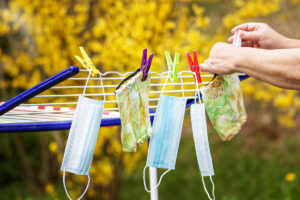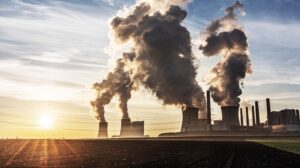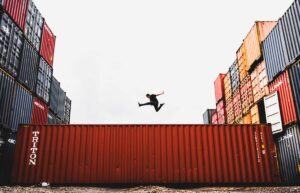Written early on a fateful day in the USA Nov. 3rd, 2020…
Anthropology demonstrates that there are many successful ways to be human, some we’ve not even thought of yet. Rethinking how and why we call some ways of being “natural” or “innate” or even “inevitable” is a requirement if we seek to successfully navigate the looming futures of the 21st century. Failing to do so, simply accepting what is right now, as it is, leads to a zombified future. A desiccated, freeze-dried reality, retaining only the vestige of human potentials, without the water of hope, dreams and compassion to enrich it, give it life and enable the flesh to expand, radiate and once again encompass the possible.
Other possibilities offer us hope and deserve our attention. Right now, humans are wracked by incessant crises of climate, economies, politics, sexism, racism, and phobias of difference, diversity and change. Societal hegemonies maintain these crises, using them to feed inequity and solidify disempowerment, oppression, ignorance and worst of all, hopelessness.
Anthropology demonstrates that there are many successful ways to be human, some we’ve not even thought of yet.
But data and understanding drawn from anthropological research and scholarship about human biology, human evolution, human economic and political realities and the history of our societies, past and present, offers hope. Anthropological knowledge can help us envision, and make real, other possibilities.
One’s economic and educational achievement in life is not predetermined by our genes. Biology matters in all things, but it is seldom deterministic, predictive or even fixed in regard to the outcome of any given person. It is always contingent. One’s family’s class, wealth, connections, race, etc… shape much, but not all, of one’s trajectory in a society. At the moment, however, as most nations hurtle along a trajectory of increasingly limited, if not non-existent, social/class/caste mobility the hold of inequality and inequity in access, opportunity and outcome is becoming increasingly solidified across the planet. But we know that this need not be so. Our current systems of economic structuring, health care, education and governance are neither the only nor the best options for humankind. We have seen that humans, past and present, can and do engage in a variety of economic systems, modes of exchange, valuation, trade and assessments of prosperity and wellbeing. That a specific form of market capitalism is the predominant from of economy (and politic) in the first part of the 21st century tells us nothing about possibilities. Extreme material and social inequality, is neither ancient, nor “natural”, nor inevitable. Therefore, we can (and must) draw on the past and present with an eye towards the future and imagine how we can do society better. It is within our capacity.
That a specific form of market capitalism is the predominant from of economy (and politic) in the first part of the 21st century tells us nothing about possibilities. Extreme material and social inequality, is neither ancient, nor “natural”, nor inevitable.
The shape of the genitals one is born with (or the chromosomes one has) neither determines one’s gender nor fix one’s desire in a particular pattern or context. The biology of this is clear. So, while many societies (or better put, governments) are doubling down on repressive, binary, restrictive sex/gender identities and definitions, humans can and should imagine and live more fluid, more fitting sex/gendered lives. Such a possibility enables societies to see, feel and realize how the diversity that is always there can open pathways to wellbeing, heath and equities that could offer new options for how we organize and structure our social landscapes. Recognizing and accommodating complexity in human sex/gender and all its accompanying possibilities opens new doors for the future.
In fact, it is the reality that such biases and discrimination are not backed by any biological reality and do not reflect any inherent limitations on an individual’s social capacity that gives us the hope and the possibilities of imagining and creating social realties where these patterns are not enacted, not maintained and not desired.
The color of one’s skin, the shape of their face or texture of their hair, or the genocide, rape and enslavement of some of their ancestors tells us nothing about the potential of that person to flourish as a human being. Yet in the contemporary world we have structured societies so that these non-predictive facets of the human experience do indeed predetermine the options for an individual. This is anti-human in that it restricts society from the benefits and full participation of all of its members. And it is doubly horrible in that those in power of many societies intentionally structured their worlds so that these patterns of racism and bias are maintained, reinforced and believed as valid and necessary by many in their populations. This is neither inevitable nor necessary. In fact, it is the reality that such biases and discrimination are not backed by any biological reality and do not reflect any inherent limitations on an individual’s social capacity that gives us the hope and the possibilities of imagining and creating social realties where these patterns are not enacted, not maintained and not desired.
The current landscape of economics, power, race and gender are not fixed, immutable or inevitable. None of them are “natural” but all are possible. However, there are so many other possibilities. To make a better world we need to develop, explore, enact these other possibilities of the human experience. Now.
One’s economic and educational achievement in life is not predetermined by our genes. Biology matters in all things, but it is seldom deterministic, predictive or even fixed in regard to the outcome of any given person. It is always contingent.
Trained in Zoology and Anthropology, is a Professor of Anthropology at Princeton University. His research delves into the how and why of being human. He is an active public scientist, a well-known blogger, lecturer, tweeter and a writer and explorer for National Geographic. His current projects include exploring cooperation, creativity, and belief in human evolution, multispecies anthropologies, evolutionary theory and processes, and engaging race and racism.


